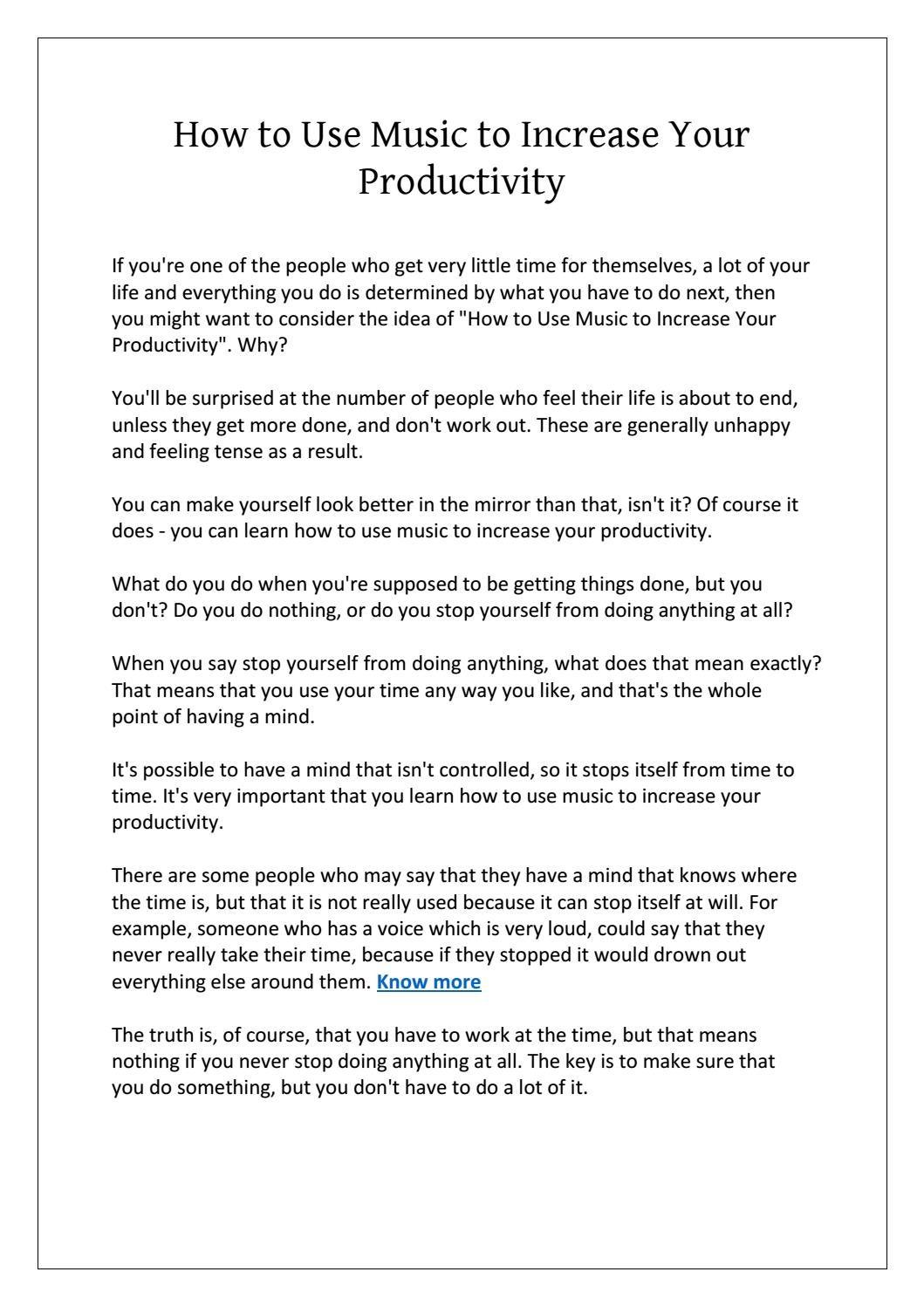Share to Facebook
Share to Twitter
Share to Linkedin
Shutterstock
I love music. Music in the car. Music in the shower. Music everywhere.
But music most important when I’m at my desk busy working from home. I use music to get me in the right mindset for whatever I’m working on. I have a girl-power playlist for when I’m low in confidence on a new project. Spotify’s coffee shop jazz playlist gets a lot of play when I’m working on something particularly stressful. And endless streams of my favorite artists are on deck when I need them to get through a tough day.
I already know I loved music but I didn’t know that there’s science behind my love.
A recent study
on music and the brain investigated the effect of music on people's brains when on opioid blockers (these interfere with the brain’s ability to feel pleasure) versus on a placebo. The participants who had taken opioid blockers enjoyed the music much less than those on the placebo.This means that music has a similar effect on your brain as food and drugs, the researchers concluded.
This makes sense. But those effects aren’t necessarily compatible with work. So I started to wonder if maybe I was imagining that music helps me be productive. It turns out, like anything, making music work at work is a delicate balance.
Here’s how to conquer that balance.
Choose music without lyrics when you really need to focus:
Studies have found that listening to music with lyrics while completing language-based tasks can make you less productive. In
one study
, intelligible background speech made people bad at proofreading while they could perform tasks like basic math unaffected.

Listen to upbeat tunes when working on repetitive tasks:
While music can distract you from some work, it’s very helpful during monotonous jobs or tasks. Researchers at the University of Birmingham in the UK
studied as
sembly-line workersand found that music made them more efficient. The study also noted that worker’s performance improved more when they were listening to music that was ‘lively and beat-y’ than when the music just had a steady rhythm.
Your favorite songs are more helpful than songs you don’t like (and they’re way more helpful than annoying background noise):
One group of workers that have become central to the music at work debate are surgeons. Surgeons need to concentrate on delicate tasks but they’re often working in small rooms filled with loud machinery. This is where music comes in. Most
studies have found
music to be helpful for increasing surgeons’ concentration. Specifically, they’ve noted that performance improved the most when workers got to select their own music as compared to generic background music.
And last but not least...
Avoid listening to new music:
Don’t fall into the trap of listening to shiny new music while you’re working. I’m a sucker for multitasking so I’m always thinking, “I want to listen to this new album; I’ll get some work done while I do.” But more often than not I end up very distracted. This is because the brain releases dopamine when you’re learning something new,
studies show
. This is where things tie back to that ‘music affects the brain like food and drugs’ study. If you’re listening to unfamiliar music then your brain is overloading your work-focus with chemicals that make you happy. Suddenly your brain doesn’t want to do work anymore and it just wants to listen to the new music. So save the new tunes for your commute home.
At the end of the day, you know yourself and your brain better than anyone. So if you think music distracts you from your job, put away the headphones. And if you’re like me and you think it inspires you then press play and get to work.